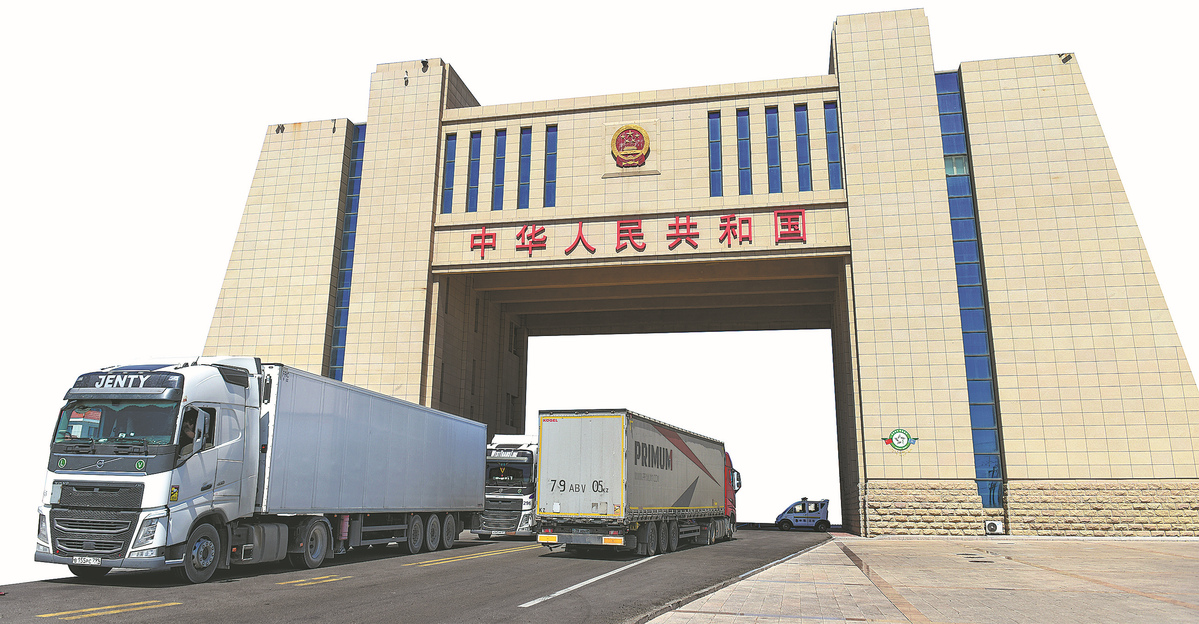Business booms at Xinjiang border ports


In recent years, measures such as a classification policy and the introduction of a public information service platform at Horgos Port have greatly accelerated the customs clearance process.
Salamat Abdilda, 43, a Kazakh truck driver, said the round trip between Horgos and Almaty in Kazakhstan used to take five or six days, but it can now be completed in two days.
Five years ago, with trade between China and Kazakhstan increasing, Abdilda invested in a 20-metric-ton truck and started a cross-border transportation business.
Abdilda transports goods to China every three days, making seven or eight round trips a month between the two countries. He said Chinese clothing and daily necessities are exceptionally popular in Kazakhstan.
A comprehensive bonded zone established at Horgos Port has attracted foreign trade enterprises and fostered cross-border trade and greater openness. The zone was introduced to make better use of the port's strategic location and take advantage of preferential policies such as tax incentives and streamlined customs procedures.
Zhu Hongjian, an official with the zone's management committee, said that since the start of this year, more than 300 newly registered enterprises have moved into the zone, and their business includes warehousing and logistics, cross-border e-commerce, and financial leasing.
The first foreign enterprise to settle in the zone was Russian food processing company Golden Katyusha. Since 2017, the company has imported wheat flour and rapeseed oil from Novosibirsk, Russia, to process into food products, including noodles, edible oils and cookies.
Iurii Basargin, an executive at Golden Katyusha, said the short distance between Novosibirsk and Horgos, along with efficient customs clearance procedures, enable the materials to arrive at the zone within two days.
He added that with a favorable taxation policy, he is confident about doing business in Horgos.
The company imports nearly 500 tons of wheat and 100 tons of rapeseed oil every month, Basargin said. After a three-year business suspension due to the COVID-19 pandemic, its noodle processing factory, which reopened in September, has already received orders totaling about 300 tons from cities such as Chongqing and Chengdu, the capital of Sichuan province.
Basargin said the Chinese market is appealing and promising, adding, "We are exploring it step by step."
























